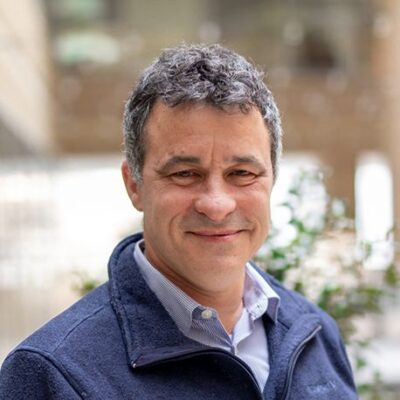Listeners:
Top listeners:
-
 play_arrow
play_arrow
118 | Kenyan Herders Say Judgement Against Them Based on Forged Signatures / Continuation of Episode 117
-
 play_arrow
play_arrow
117 | Surviving Survival Internatinal, Part 1: Kenyan Elders Call Foul on International Media, NGOs
-
 play_arrow
play_arrow
116 | From Ticking Time Bomb to Demographic Dividend: James Mwangi and Kenya's Great Carbon Valley
-
 play_arrow
play_arrow
115 | Unpacking Donald Trump's Very Weird Environmental Orders
-
 play_arrow
play_arrow
114 | Michael Greene: Carbon Cowboy or Lone Ranger? Part 1
-
 play_arrow
play_arrow
113 | The Future of Environmental Finance: Strategies for Biodiversity and Climate Solutions, with David Hill and George Kelly
-
 play_arrow
play_arrow
112 | Fantasy Football and Dynamic Baselines: New Tools for Impact Assessment
-
 play_arrow
play_arrow
111 | The False Dichotomy Between Reductions and Removals (Rerun)
-
 play_arrow
play_arrow
110| Ecological Economics, Systems Thinking, and the Limits to Growth
-
 play_arrow
play_arrow
109 | How Brazil's Quilombola Communities are Planting the Seeds of Sustainability for Small Farms Around the World, with Vasco van Roosmalen of ReSeed

- arrow_back Home
- keyboard_arrow_right Podcast
- keyboard_arrow_right The Tribes of the Climate Realm
100 | The Untold Story of the Voluntary Carbon Market
Carbon MethodologiesForest CarbonSustainable Agriculture Episode May 1, 2024
-
 play_arrow
play_arrow
PLAY EPISODE
Transcript
Become a patron at https://www.patreon.com/bionicplanet
In Episode 100 of Bionic Planet, part of the Tribes of the Climate Realm vertical, we delve into the origins of the voluntary carbon market — a story that has never been told before.
Today’s show is the first of many offering a truer, completer, and more accurate glimpse into the origins of the Voluntary Carbon Market than you’ve probably ever heard before.
The episode draws on a 2022 discussion with environmental economists Marc Stuart and Mark Kenber, who were instrumental in creating the Verified Carbon Standard (VCS) in 2005 to meet two core objectives: first, to accelerate emission reductions in the wake of failed government policy and, second, to test new approaches to meeting the climate challenge.
We offer a brief history of climate negotiations leading up to 2005 and the exclusion of forest protection and sustainable farming from the Kyoto Protocol and the Marrakesh Accords. The discussion touches on the complexities of integrating these crucial elements into the market, emphasizing the importance of balancing environmental integrity with development-focused activities.
Join me, Steve Zwick, in this insightful journey through the history and evolution of the voluntary carbon market, as we strive to create a more sustainable future for our planet. Thank you for tuning in to Episode 100 of Bionic Planet.
Related Episodes:
049 | Forests in the Paris Climate Agreement, Part 1: The Birth of Forest Carbon
https://bionic-planet.com/podcast-episode/049-forests-in-the-paris-climate-agreement-part-1-the-birth-of-forest-carbon/
064 | Race to Zero: Meet the Taskforce on Scaling Voluntary Carbon
https://bionic-planet.com/podcast-episode/064-race-to-zero-meet-the-taskforce-on-scaling-voluntary-carbon/
75 l Coverage of Climate Solutions Suffer the Same Fate as Coverage of Climate Science?
https://bionic-planet.com/podcast-episode/75-l-coverage-of-climate-solutions-suffer-the-same-fate-as-coverage-of-climate-science/
Timestamps:
- Introduction to the History of the Voluntary Carbon Market
- The Origins of the Verified Carbon Standard (VCS)
- The Role of Carbon Markets in Addressing Climate Change
- The Failure of Governments to Address Climate Change
- The Evolution of Voluntary Carbon Standards
- The Importance of Ending Deforestation
- The Emergence of Voluntary Carbon Markets in the 1980s
- The Kyoto Protocol and the Clean Development Mechanism (CDM)
- The Exclusion of Forest Protection from the Kyoto Protocol
- The Creation of the Voluntary Carbon Standard (VCS)
- Challenges in Implementing Standards for Forest Protection
- The Need for Unified Rules in Carbon Markets
- The Involvement of NGOs, Businesses, and Organizations in Developing Standards
- The Controversy Surrounding Inclusion of Forest Conservation
- The Importance of Addressing Permanence and Fungibility
- The Collaboration Between NGOs and Businesses in Developing Standards
- The Importance of Including Forest Conservation in Carbon Markets
- The Role of NGOs in Advocating for Inclusion of Forest Conservation
- The Significance of Learning from Past Lessons
- Call to Action for Support and Sponsorship



